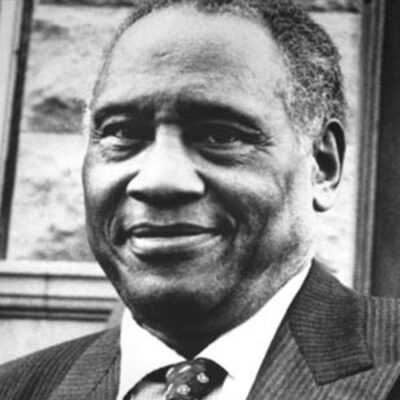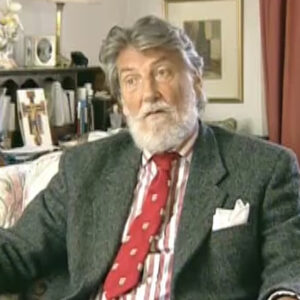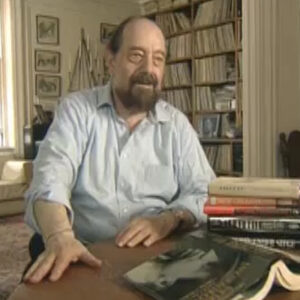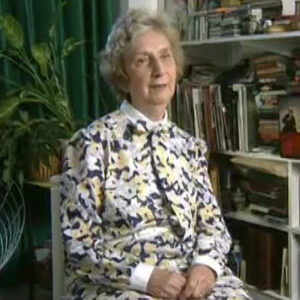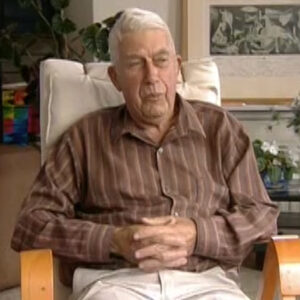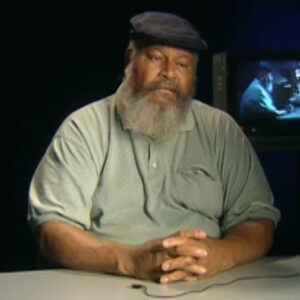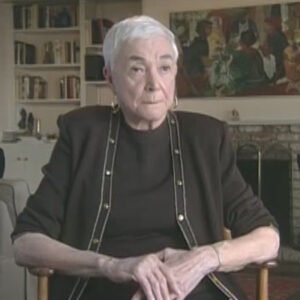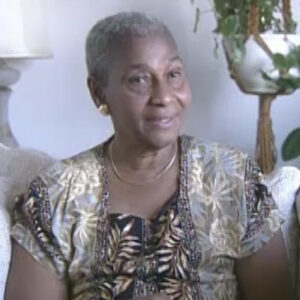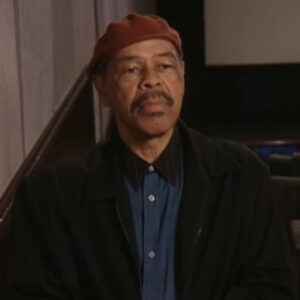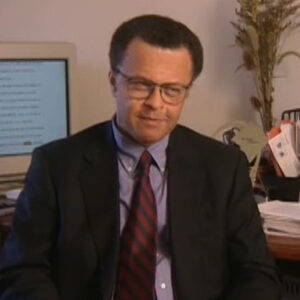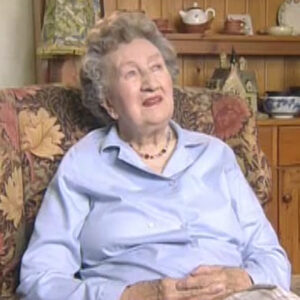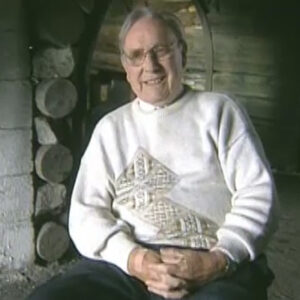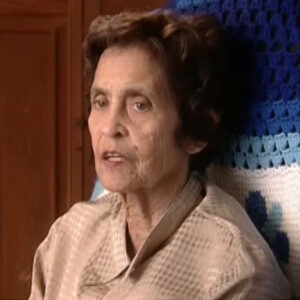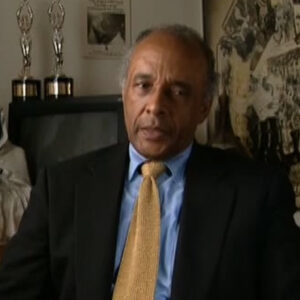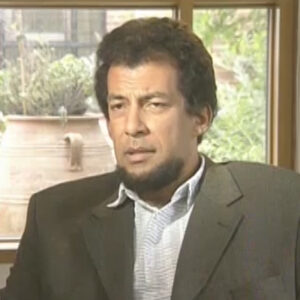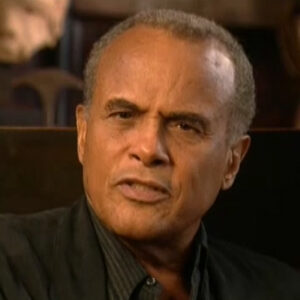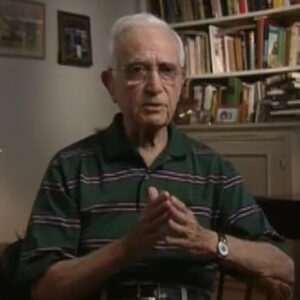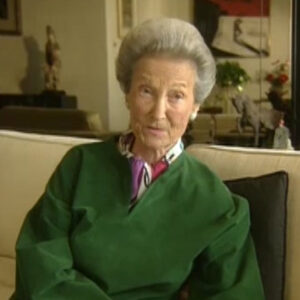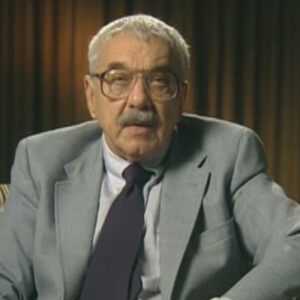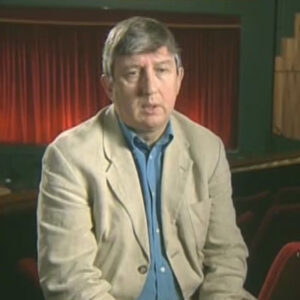Speaker As Rosie learned by Jimmy Smith, a great organist, he not only was a pianist, but he was an engineer. He rented a flat and took a piano way up on something like the 17th floor, took his automobile tools and took it apart piece by piece. This Jimmy Smith, the great organist, and put it back together and even modified it. So he knew exactly what sound was coming from.
Speaker And so, Robert, when he learned when he was interested in piano, he talked about the keys in the same. And he declared after much research that there’s very little difference in people and his relationship to the means of production usually determined how he would think.
Speaker For example, he said in conversations in India with an old notable friend of his said, hummed a song.
Speaker He said, that’s an old Indian folk song. He said, no, it’s a spiritual. And he said most of the songs, the people that they talked about when they played on the Black Keys.
Speaker It had the pathos, the sadness, and it spoke to the feelings of people, you know, very little, very little.
Speaker Oh, let me ask you this. One thing you do do is organize and work in the trade union. That’s right. Okay. Now, let me ask you, this was what was the scene of of Labor’s trade union movement in the 30s? In terms of black people, though? That’s a lot of people in it.
Speaker You know, we weren’t in the trade union movement in the early 30s. It was those of the left who decided that, like Harry Bridges and Booker T. Washington when he said, if you want to keep someone in the gutter, you better get yourself to hold him there.
Speaker And in the beginning of the organizations that realize that those who attempted to divide people attempted to rule them both. And we learned that lesson on the waterfront, especially.
Speaker I’m asking the question. Yeah, what was it like for black people in the 30s?
Speaker It was segregated. It wasn’t very nice. It wasn’t very good. It was an exercise in futility in many instances. It wasn’t a nice experience and took a great deal of patience and understanding and determination. Why did you get into it? Because it was the way to go. It was the way to go. When I started going to see IS a merchant seaman in the trade union was in its early days of organizing.
Speaker We saw the law, the larger picture that the future of our industry and the security of our industry was to a great deal determined by the unity of the guys at the point of production.
Speaker And there we had to have some kind of unity. If you wanted to advance this with black people and white people, black people who understood this. And there were those among us who thought we could make it on our own. But we found out with monotonous regularity that you can’t you have to work together to guarantee any permanent success.
Speaker So what was your position? What was your first position in the trade union movement to write? What was the national union mean, cooks and stewards then with the loss of the first one first?
Speaker Well, I went to see as a as a bellhop on a ship and the ships running up and down the coast, it was called the admiral line. I got a job as a bellhop making big money. Twenty eight dollars a month.
Speaker But it was a luxury liner, kind of luxury liners that they run up and down the coast. They’d go from San Francisco and go south to Los Angeles, down to San Diego, come back, and then they’d go up north.
Speaker Hitting Vancouver, Washington, hitting Portland, Seattle.
Speaker And coming back and those trips were beautiful trips, they were very, very luxurious and it was fun trips like the cruise ships that you see, it was an animal. There’s a whole fleet of them. And so I first went to see them as a as a bellhop and got seasick, as you could imagine. You never imagine the first and most seasick man on my first trip to sea.
Speaker But nevertheless, I hooked up, if you please. With some prominent guys, my mentor was a Revel’s Katon, the maternal grandson of the senator from Mississippi, Senator Hiram Revels in a very close friend of Paul Robeson.
Speaker Senator, his brother was a great sociologist and writer in Chicago.
Speaker Did you know about Paul Robeson?
Speaker And when you first started doing when I first started, I had heard of him on the movies, but I didn’t get to meet Paul until 1939.
Speaker Did Rebels ever talk to you about when you first met him?
Speaker Well, not really. Not too much. But he did talk about he knew something of Robeson, but not too much.
Speaker He was very busy trying to organize. And eliminate segregation in the Marine Corps Consumers Union because there were ships that we couldn’t ride, for example, the luxury liner that went to Hawaii, they call them the white ships.
Speaker Not only because they were painted white.
Speaker But we had a saying that they wouldn’t even serve black coffee, but nevertheless, those ships were off limits as far as we were concerned, unless some of our brothers went to Hawaii and said the Hawaiian got off the ship and make it sealed off the ship because they were passing, if you please.
Speaker So. So what was your first job in the union?
Speaker My first I was a delegate on the ship.
Speaker And those ships, we had 300 people, you know, and stewards department. And I listened to people like rebels. And I learned the trade union movement and the basic principles upon which the union was founded. And in the tradition of people like Dubois and all the good people that had some sense, as we say, we’re advocates of the rights of all people to walk this land with dignity. And so I got into I got into it and learn. And we have to study and to read all the time and study history, because most of our history is disinformation instead of information. You have to search for the real history of our people, especially with reference to the history of our people in America.
Speaker So so talk about your job.
Speaker And so I got so I got to be a ship’s delegate.
Speaker I was elected ship’s delegate and from there. At convention, I came ashore and they came ashore as a. Patrolmen or business agent, I ran for business agent, there was a time when there was only one business agent, that job was reserved for a black person because of the number of blacks in the union, the all the others, there were three business agents. And the others were all Caucasian. And I was the first one, I think, to run.
Speaker Where there was no. Color line.
Speaker And I’m quite popular, I got to copy the pictures here, some books down there, you’ll see I ran, I ran and won by a landslide, three times as many votes as all the rest of my friends.
Speaker But all the all the combined votes of the others couldn’t touch the total that I received for four business agent and I. So I got to be a business agent and in the port of San Francisco.
Speaker And then from there then that I became a national office, I they I ran for the office of the port agent. For the Southern California area, and that’s when I went to Los Angeles for three years, 50, 51 and 52.
Speaker I was the agent for the union when I came back to San Francisco as the national secretary treasurer. I don’t know of any other instance where the then secretary treasurer, his name was Eddie Tanjim.
Speaker At convention, he shocked the entire nation when he said, I believe in integration not only at the point of production, but also in the office, and therefore I’m stepping down as national secretary treasurer and nominating Joe Johnson.
Speaker And campaigning for his election.
Speaker And that was the way I actually became. The national secretary treasurer of Minko Consumers Union, and that capacity has stayed for a full and complete term, the president of the union was a man named Hugh Bryson.
Speaker And the national secretary treasurer was Joe Johnson, and the port agent was a man named Eddie Tangent who.
Speaker We thought it traded jobs with the acquiescence of the membership and we had about an 85, 90 percent turnout in the election. We stress the idea of real trade union democracy. And if all young fellas to not. Let me ask you this.
Speaker Pauses I. OK, good now. OK, so here you are, you’re an official in the union. Did Paul get involved in helping you support the union when you were coming up, or was it later?
Speaker Well, Paul, Paul was an honorary member of our organization, and the idea of being a good friend of Paul Robeson wouldn’t hurt anybody when. This was in the early days I first got elected to. In the late 40s to the to the job of a business agent, football became an honorary member of our organization that act at the founding convention in 1946. Why? Because he liked he was offered we asked him to come as a guest speaker. And we like the way he talked, we liked what he stood for, his dignity was such a great asset to all of us who wanted to be something to be like. Paul was the aspiration of most of our guys, who was a man who presented himself with dignity, fearlessness and his song ballad for Americans. He told how he felt he could speak the language is coming to the union hall in Spanish to the Hispanics.
Speaker He could say Russian natural, he spoke Russian, he learned that in six months without an accent. He could send the Chinese love to hear him sing, jilli, we’d have parties at the union hall on Saturday nights and things like that, if this man was a personality who loved is at home with working people, those who really made a contribution to society and not naturally someone articulating your cause.
Speaker Clearly and with great dignity made us all feel good.
Speaker Let me ask you this, this let’s just say this is an early 40s. Yeah. So the last half of the 40s, he got jammed. People came out. The government came after him, his boycott’s and a lot of the unions who supported him turned their back on. How did you guys feel about that?
Speaker We jumped to his aid. We loved him and respected him.
Speaker All the more, as we just mentioned, is when you when I ask you this question about and you start off saying in in in the late 40s, so people know in the late 40s, oh, I get it wrong, OK, in the late 40s, Paul Robeson was harassed for standing up for the trade union movement.
Speaker That was a major cause of his harassment. And any attack against Robertson was an attack against us. And we had our people in in the trade union movement, especially in San Francisco, where all prominent members of our churches and it was the Third Baptist Church that they had this concert, one of the first concerts when he made his comeback was held in Third Baptist Church in San Francisco. And we have at that point the thing called the church labor committee and saying that everybody that worked for a living belong to somebody, his church. And we had organized our communities under the philosophy. It’s a matter of what’s right, not what’s right.
Speaker And the story of Paul Robeson, regardless of the kind of attacks, is hard to diminish, try hard to denigrate the name of a great man like him.
Speaker But some people didn’t do that. Some people, right?
Speaker That’s right. Because they were afraid and vocal. Saint-Marc tells a man’s heart to treasure life. You cut off a man at the pocketbooks. You’ve got to be a pretty brave guy.
Speaker So but so what, within your own group, there were people who who didn’t support you?
Speaker Well, I don’t know how not to openly they just a lot of people froze up and didn’t say anything at all. But there was a screening process, you know, was that the attorney general at that point?
Speaker They had an attorney general subversive list and based on a telephone call, you could lose your job. And many people did lose their jobs, if you please.
Speaker They were screened, as you call it, off of the ship, and it would take you years sometimes before you got a hearing. There’s one good example of a man, if you would, please, if you want to hear it, named the Claudius Holly. He was a man who spoke with a British accent. He was a merchant seaman and he was a deacon in the church and a great praying man. One day in church, you got son. He got carried away. He said, God bless the children of the world. God bless even the children in communist China. And it seemed as though he was supposed to sail on the next Wednesday. He went to sign on the ship and he was screened off the ship and he couldn’t. And it took him a year to get a hearing before a man named Edwards, if you please, who was the commissioner at that point and had his hearing, let me have all his character references and things like this and asked him, what have you ever been of this, that and the other?
Speaker And finally, the inquisitor, I asked him, did you ever make a speech in church saying, God bless communist China?
Speaker He said no. He said, I said bless the children of the world, even in communist China.
Speaker Well, it’s quite obvious someone took violently out of context and got him scream.
Speaker Well, Claudia’s trial hasn’t played in church since, not allowed. He lost his job for an entire year. That’s not like a good story. Is that a real that that’s true. This is true. This is authentic. And the name is authentic. The name is true. You can find you can go to records and find that so.
Speaker So that the trade. I mean, you’re pretty high up in the whole trade union movement in general. I mean, you put if you’re known and. Yes. OK, did what was the effect of McCarthyism? I mean, overall, I mean, some people thought some people backed off. What would just personal opinion, do you think that had a major effect on it or did it just absolutely have a devastating effect on the trade union movement?
Speaker And it’s still you’re still feeling the effects of McCarthyism because that frightened, intimidated and caused death, the loss of families fortunes and. And it is now a symbol of injustice. It’s a symbol of injustice, the word McCarthyism.
Speaker You know, and and he has had a tremendous affect on the trade union movement. And there are still people, especially in the Hollywood industry, where people who stood up for decency and dignity and justice, the rights of all of us to walk this land with some kind of dignity where character, not color, is the criterion of respectability. That’s the objective of the tree of winning a trade union movement. But it’s easy to understand why we’re opposed, because we’re hitting somebody in the pocketbook.
Speaker Did you suffer from the red meat? No question about it. Give me an example.
Speaker Well, you know, they say black and white makes red. Any time people in my dear wife got to get a picture in here now for time, let me know. Okay. All right. So just tell me to give me an example of how they were you read. No question about it. They called us every name in the world just by innuendo. They didn’t have to have any proof. And just for everybody took a position against the Vietnamese war. You took a position, anything that the so-called left for are attributed to. You paid a price even in the 40s? Yes, sir.
Speaker And so that’s why I was stuck in the trade union movement.
Speaker And many of the many of my the Marine Corp, the stewardess was practically wiped off the face of the earth, what with the diminishing of the job opportunities and the fact that other unions accepted the red baiting as their motto. They helped to destroy our organization, although we had the best wages and conditions of anyone in the same internal industry.
Speaker Would you say that ultimately they did destroy it? Of course we should say.
Speaker Could you say the informant if you change forms, naturally, they got rid of all of the leadership. They screened them out and destroyed the marine cooks as stewards as we knew it. And the elections came along when they had the the NLRB elections and people were intimidated by president hubris and went to jail 23 months and five days on trumped up charges. And then five years later, they exonerated him, said it was a mistake.
Speaker In the small lines in the newspaper, he was completely exonerated. He was up for having lied under oath.
Speaker But you people read your mail. Did you ever see FBI people follow you?
Speaker Oh, yes. She did get help. You could say that. Yes, yes, yes. Say that. Yes, we were harassed in ways that you could never imagine, like telephone calls, strangers coming to your door asking for calls, asking your neighbors, questioning your neighbors about your affiliation, whether or not you had meetings at your house and all this kind of thing. And so, well, finally, one of my neighbors told me, if you’re going to arrest him, you’re going to have to arrest him for singing too loud in church, but they won’t ever talk to you about how he felt about his harassment.
Speaker You know, you saw him alive, right? So, yes, he lived in this house.
Speaker So he said he understood it fully and completely because in his book Here I Stand.
Speaker He explains it clearly, articulately on why he felt put that back.
Speaker That’s that’s a dramatic one. Won’t work in the movie. Yeah. Yeah. Why or why he was harassed because he hit people.
Speaker His whole philosophy of eliminating the myth of white supremacy got right into the pocketbooks of the owners of the means of production and that.
Speaker What did he say about you explaining why he knew? But what did he say about the efforts that were made? Did he ever say, I’m getting tired or I’m going to find him? What did he say?
Speaker He said, I hear I said, I have no choice.
Speaker I must stand up for what I believe in. And I shall do this until my last breath, I shall fight for the rights of my people to be treated with respect and dignity.
Speaker OK, that was a public stand, that’s his public stand.
Speaker What did he say in this house? It seems like there’s very little difference in this guy’s public stand, in private stand. He didn’t he wasn’t that kind of guy that made him different from anybody. I know you’d hear him make these statements here the next time he made public would be exactly the same statement.
Speaker He did not have a private public, a private agenda where he would say one thing for private and another for public. His life, as I know it, was an open book, especially with reference to his political stance. And so I knew it and I saw and I saw him sitting at the table eating fried chicken and collard greens for Andrew.
Speaker First one was relax the muscles, he had no private position and he understood the attack. I’m not the only one to attack everybody who stands up for his rights. He’s a great philosopher. He’s a great believer in Frederick Douglass, who set the limits of tyrants prescribed by the endurance of those whom they oppress.
Speaker Did it feel that way about the unions that turned turned on him? Also, did he ever say anything publicly against the unions? No, no, of course not.
Speaker They do the best they can. They don’t know, of course, some of his own dear friends in quotes who turned on him and actually supposedly made statements. He was very generous in his comments about Jackie Robinson, Jackie Robinson, who later recanted when he made a statement about he will not be seduced by a lullaby sung and bass, you know, and then he knows full well that it was Robeson who went down to the commission with a delegation demanding the rights.
Speaker And my career declares that a public is ready to accept black athletes. We’ve got the complete approbation. Can you imagine today an athletic event, basketball where he excelled, baseball where he excelled, football where he excelled? Can you imagine? A team without a single African-American, this man broke up the four horsemen from Notre Dame, as they call it, Notre Dame was the city. It was a school where the idea of a black person playing on a football team was unthinkable.
Speaker And now today it’s just a common thing to see athletes of color dominating the sports.
Speaker Let’s get back to the trade union thing. Same thing. Well, that’s what I want to ask. How has the role of black people in the trade union different from when it first started till now?
Speaker Well, the job you know, I have a saying that, you know, affirmative action without a job is like a sandwich without bread.
Speaker You have to have work for us, so the jobs have disappeared. In our country. A great deal of our work is taken outside of the country, farm equipment, for example, machinery.
Speaker In the ships, they don’t build the vans, all the containers, all kinds of work has disappeared out of the country where the finished product is brought back to this country.
Speaker And we blame the victims and we make disparaging remarks about those who work for a living.
Speaker Well, we say there’s no such thing as a menial job, only menial money. And so we try to talk about the dignity of a working man. And there’s no such thing as an unskilled job. If it’s a job, you get paid for. It requires some kind of skill. So we try to give as much dignity to every person who’s working for a living. Was it that way in the 30s and 40s? That’s right. That’s the basic principle on which to trade you.
Speaker I mean, did you did you were you able did you have the clothes? Could you run that line in the 30s and 40s?
Speaker You were always there and we always ran that line. That’s the kind of line that made us different.
Speaker And that’s the kind of line that labeled us to, if you please.
Speaker OK, good.
Speaker Um, so now do you think that the rank and file of the trade labor union movement, the trade union movement now, do you think that they are aware of Paul Robeson?
Speaker Do I do you think that the members of the trade union movement today. Yes, but just how were they about?
Speaker Well, we try. That’s why we are part of this commemoration committee to try to keep it alive. You see that this is it’s surprising. It is only a microcosm of all the rest of society and sort of America’s forgotten them. The trade union movement has forgotten them, too. And so sure has been forgotten by a member of the rank and file. And that’s why we tried to recreate based on the true history. Not the lies or half truths, the innuendoes and most of the historians that write about this, things make asinine statements like his life was a tragedy, nothing further from the truth. It was a triumph. Because he the writer of wisdom who said, where I live down one, those will stand young and fresh, must have had Robeson in mind.
Speaker What about your life? Do you think that your life was affected by knowing you?
Speaker No question about it. Can’t you tell it? Yes. Yes, sir. My father and Robi are the two outstanding heroes of my life. Robi, the everything that he stood for, I wish I could sing, that’s the only thing I wish I could sing like. But nevertheless, I’ve tried to learn, speak a few languages. To say what I mean and mean what I say. And once you lose the fear, great things happen to you when you know that you are right and you can base the rightness of your cause on history. That’s how you know that when you know it’s the truth and somebody can tell you some truth about yourself.
Speaker And prove it to you, but let me ask you this, the one of the great disappointments I’ve heard was that that the Maritime Union, they they made him an honorary member. He was, you know, beloved and praise. And him when the 50s came, they threw him out.
Speaker They would let him speak, not wait around for that. And not true. It’s not that’s not true. That’s a that’s a gross exaggeration.
Speaker The Maritime Union you’re talking about, they they disintegrated because the membership.
Speaker Decreased because we didn’t have the jobs.
Speaker And the unions never threw out the name of Rabson. The unions never threw them out because the numbers still admired and respected and he was beloved, but naturally, if being a friend of Robertson and a strong supporter of Robertson, especially during the 50s and the 60s, meant you might lose your job.
Speaker That’s different, isn’t it? So you have to be quiet about it. It’ll be quiet about it.
Speaker And so naturally in the trade union when they had this McCarthy during the McCarthy period.
Speaker Nobody talked about Rovi.
Speaker What he stood for and those unions that did. Or the kind of courageous unions like mine, like the ILWU after Marine Cook, the stewards left, the longshoremen still stood up. And they’re still standing up.
Speaker Um.
Speaker Oh, I’m on the East Coast, so right, you know, so there’s not a lot of a lot of the political progressive activity we don’t hear about.
Speaker Yes. Out here, especially in the Bay Area.
Speaker How often did Paul come out here to support, you know, I mean, when did he come out here?
Speaker Most in the early 40s, I guess in the 40s and the 50s and the 60s.
Speaker Yeah, he we’ve got a list of all of his different fares, sometimes I might give you a schedule of them.
Speaker And so you say one once a month, twice a month?
Speaker No, at least no. About three or four times a year. He’d find some time to find himself somewhere on the West Coast, and he said he loved the West Coast, he loves the feeling people.
Speaker How we loved him. Everybody likes being loved and respected. And honored.
Speaker Especially in Los Angeles area and here with a great Jewish communities, he was loved and respected in the Jewish community.
Speaker You see?
Speaker So, oh. Harry Bridges did have a particular relationship with him.
Speaker Absolutely, because Harry Bridges, when he stood up for the rights of African-Americans to be members of the Duke.
Speaker He ran afoul of the rotten well, give us some background. When was that and what did he say?
Speaker Well, when Harry Bridges was in 1934, he became chairman of the strike committee. And then they finally ran and he got elected to the to the international president.
Speaker And he was continually harassed, continually harassed, and he and Rovi respected Harry Abridges. Because more than anything else, because of Harry Bridges stand on fighting for the rights of black people to be members of the union. And especially they had one time in nineteen fourteen right after the 48 strike into the war.
Speaker When there wasn’t much work and they were going to cut back because I always cut its pattern according to its cloth, it never took in more members. And there were job for. And so we’re going to cut back. And there was and so the last hired. Was supposed to be the first fired. And Harry Vergis took that political positions, that’s nonsense and says if we’re going to take them, we’re going to if there’s only two left, there’s going to be one black and one white. It is the best weapon of the employer to divide black against white, and that’s what it was at that point. Everybody wanted to be white, you know.
Speaker There was no great nobody wanted to be a minority unless they got some goodies to go along with it. And so Harry Bridges took a progressive position that in order to protect and preserve this union and the conditions. We have to fight for the rights of the blacks to maintain their jobs in the union. And that made him a pariah in many of the branches, lots of places that were traditionally Jim Crow, especially at the sailors going into the Pacific on the ships, we were the only ones that we integrated, the Marine Corps, the stewards.
Speaker The others weren’t.
Speaker The others weren’t so so so bridges and all, did they talk or were they personal friends?
Speaker Well, I just talked and he was invited naturally come and speak to the unions, speak at the convention as a guest speaker at the convention. At the banquet. And he was a highly respected figure, got to be an honorary member of the union, if you please. Can’t get any higher than that. He’s an honorary member of ILWU, an honorary member of the stewards. He was here.
Speaker We made him first.
Speaker What specifically?
Speaker What do you like most about, oh, yeah, a plane, right? Uh oh, good.
Speaker OK, what is it I mean, on a personal level? You mean you actually hung out with the man? That’s right. So on a personal level, what did you like about him?
Speaker Best was the overall carriage is the man, his dignity, his integrity, the charisma, more than anything else, he’d fill up a room when he’d walk into the room.
Speaker And his use of the language being, you know, I’m into speaking.
Speaker And the way he used the language, where he expressed himself, he had a kind of integrity and old fashioned honesty.
Speaker That was fascinating, and he could hold a conversation on almost any subject that you could name.
Speaker And it was an international person, and he never forgot where he came from.
Speaker He admired and respected other people. He admired and respected other cultures.
Speaker But knowing it’s his culture that he accepted and recognized, you know what I’ve often wondered, what is it like to be black, to be involved in labor politics, and also to be therefore to be involved in leftist politics.
Speaker And a lot of black people are suspicious of leftist politics. Farai. What was the tension?
Speaker Well, it’s it’s obvious because there’s an old story and so many people. So many people, we all the result of our accumulated experiences. So how can you trust? A person, really.
Speaker And there’s so many people who have had such a very, very, very bad experiences all their life and all the things that they’ve read, all the things that they’ve seen, they’ve been turned into brutes, as Frederick Douglass said mine when he was faced.
Speaker With opposition in its most violent expression, continued lying, cheating, embarrassed, humiliated, all the things that goes along with being a [Unrecognized], I can say that.
Speaker But none of my white friends can say that in this country, you can never know how it feels to be one so pointed to.
Speaker So labeled and so continually humiliated. Like Douglas said, my natural elasticity was crushed, what is going on with this is going as to how Paul Robeson felt, although you have come from this group. And, you know, it’s dishonest and true, but how do you know that the white person you’re dealing with having some remnants of white supremacy in the system because there isn’t a white person alive? Without who isn’t affected by the myth of white supremacy like Harry Bridges admitted this in a statement once before the membership, he said, To admit or to feel that you are without prejudice negates the necessity of a fight against it. You never sure it’ll rear its ugly head in many different ways that you don’t know about. So those of the left.
Speaker Many times.
Speaker Fell off of their high pedestal. And when phony.
Speaker And so, like I’ve often had the pleasure of saying it’s a matter of what’s right, not who’s right, and don’t follow me, follow the principles, I might go phonier. You can’t tell. You put the pressure on the person. Everybody reacts to pressures. Now, here’s a man who didn’t react, who gave his life, if you please.
Speaker Without bending his back.
Speaker And the let’s say the ordinary nun left this black person.
Speaker Well, I don’t think there’s any such thing, you know? No, not really. You’re going to have a lot of liars. You got guys like my dear friend Clarence Thomas and Ward Connerly, Ward Connerly.
Speaker There’s been a lot of people who just think that that’s I’m not the most sophisticated, you know, just people, people who don’t buy left politics. Black people who don’t buy left politics.
Speaker I don’t know of any. Not a single one, especially if you’re going to call it left when you say you believe in eliminating racial discrimination. Tell me one black person that doesn’t believe in an elimination of racial discrimination.
Speaker That’s where a lot of black people who didn’t go for Paul Robeson, mostly politically, because they didn’t know. Well, I’m not saying I’m not talking about the reason I’m saying Grabovo. Black people who think of them now, that’s what I’m saying, is you are somebody who does know. That’s right. OK, but there are a lot of black people who don’t know. That’s right. Therefore, they did not. They didn’t. They they they like poor Wilson as a singer, as an actor. But they didn’t go for the politics stuff. OK, now how do you use as a as a black left person, how do you approach them? Because there was that problem among black people about robots and robots and became the litmus test for a lot of that attention granted. How do I approach them? Yeah, where I’m from watching you with honesty and truth. That’s my ability.
Speaker Yeah, but you just told me that, you know, William and I said, I don’t know. And that’s not what I said. That’s not what I meant. I said I don’t know a black person.
Speaker Who isn’t in the eyes of some left? I don’t know if none of any such thing as a non leftist black person. That’s what I said, what I meant was that anything. That you describe the. As left. In the eyes of some person.
Speaker Would be.
Speaker Unacceptable, for example, in the fireman’s union, one business agent got up and said, no, we are anti-communist and every black person is a potential communist.
Speaker And even to this day, even to this day, at this point.
Speaker If you say you believe in racial equality, the rights of all to walk the land with the dignity of a first class citizen, you would be considered left, right. No, not necessarily. Oh, you’re young man young. Yes, you are, too.
Speaker You to take a look around. Any time you say you don’t believe in racial discrimination, you’re considered left.
Speaker No pro black necessarily left. I’ve interviewed people who look, we have we had black journalists. We had left us. We had black communists in London who said, listen, there was a there’s a faction between being pro black and pro left. Well, I don’t know about that. Well, that’s the question.
Speaker Yeah, I don’t know about it. It’s over my head. OK, I really don’t know because my experience has been. If you skip above all of that business. Skip above it and you’re talking about the issues. Issues involved. I don’t care what a man is, as long as I don’t care about how he treats me.
Speaker About how I’m treated. OK, well, stop the plane.
Speaker For example, in Rome, for example, sometimes when we’d call police, when our buildings were vandalized, quite often, I had a police officer once tell me that this has happened because you’re leftists and things like that. And and of all, the trouble is only caused by a few hotheads.
Speaker I said, will you stop granting legal immunity to the hotheads in his head? Won’t get so hot. We’ll take care of all the hot heads as long as we know that when we get before the law. That the facts will determine the outcome of the case. We’re after leveling the playing field and names that Robinson said in the tapes, we’re not going to give, can’t judge a person by name that you call him. Because it might be one name today and another tomorrow.
Speaker And too much emphasis and quite frankly, I don’t know what some people mean when you say left or right. He’s a leftist, I don’t really know what you mean.
Speaker All I know is that the constitution of this country, as it was written and has never been practiced, not to the fullest. We’re after the Constitution as it was written. We want character, not color, to be the criterion of respectability is that left before making a speech like that? You would be called a left winger sometimes.
Speaker For saying that I as an American.
Speaker We’ll accept some of the worst as long as I’m entitled to some of the best.
Speaker I want to eliminate cultivars while I must. Promote African-American ism, and I like that name for a while, to be called an African-American was an insult.
Speaker And in the 40s and 50s, it was only reasonably. That as a result of working and studying that we’ve learned because most of our education is Eurocentric, do you think that a.
Speaker Do you think that, uh, where do you think Rose and stood on that?
Speaker Here’s a man who looked like a student. He’s an A student, we know antipathy toward excellence in this man. The great web Dubois said, I have something to say to this world, so I’ve just taken English 12 to say it. Well. And those who want to elevate the position of our people.
Speaker They tried to do it to the best of their ability. He does have a beautiful sense of humor. But you don’t have the humor where you’re the butt end of all the jokes. And that’s the way it has been and that’s the way it is now, and that’s what I am continually trying to eliminate robes and robes and I’m asking.
Speaker That’s right. Robbie was exactly the same way. This is this is Robi’s philosophy. I’ll not be the butt end of your jokes.
Speaker I want to be the hero as well as the villain.
Speaker Two questions, last questions, how would you evaluate your personal relationship with him over the years?
Speaker Well, that was a great admirer of Paul Robeson, a friend. A great admirer of friend.
Speaker A person who understood, if you please. More than anything else, his philosophy and related to it and accepted it as a role model. He’s been a real good role model for me. And he continues to be not only for me, but wherever working people. Any place in the world. Seek to stand up for what’s right in this beautiful song, Old Man River, his interpretation.
Speaker I keep laughing instead of crying, I must keep fighting until I’m dying.
Speaker So and in African-American history, how would you place him? What do you think his places?
Speaker Well, the very top.
Speaker The very top, along with all of the other great heroes of heroes, Rowby, Dr. King Frederick Douglass.
Speaker Nat Turner recently, and it’s hard to to to to qualify a person while he’s still alive.
Speaker It’s not quite fair, really. Because the person’s only human.
Speaker It might say something you might disagree with. We might change back and say something you agree with, so you can’t really evaluate a person until he’s.
Speaker Launched into immortality, the man’s immortal, no question about that, not only in this country, but all over this world. And just loved and respected and most of the countries in Africa where I’ve been privileged.
Speaker To. To visit. I know in Kenya.
Speaker When I hear words like outand you clearly who taqwacore know the truth and the truth will set you free. People refer to any time you hear that kind of thought, he was a very close friend of John McCain came up with.
Speaker In Zimbabwe, formerly Southern Rhodesia, where they say, Jack Anaka, or may your life be a pleasurable journey as long as love lasts. As long as memory lasts, life lasts. I think of Rovi when I think of these these.
Speaker Would you just repeat the anecdote when you said. And do you really mean that?
Speaker When you ask him what he had said something and you said, do you really mean that what he replied, could you tell that that little vignette where we were a group of people and someone asking one of the one of the people in the audience of Paul, did you really mean.
Speaker And he interrupted him. Right on the spot, it was Philbrook, not name.
Speaker He said, just a minute. Don’t you ever ask me, did I really mean.
Speaker I mean what I say and I say what I mean, and you can understand me.
Speaker He said, I have many, many awards for having the best diction on the American stage.
Speaker So you can understand what I say, and if I said it, I meant it. And he turned to the audience to do damage.
Speaker This is a time when you’re not even polite to some people. The man could switch on your real quickly from a quiet, gentle soul to a frightening human being is like. And this is the kind of thing that nobody, if you please wait, big guy, six foot four, 270 pounds.
Speaker Lightning fast reflexes, and he taught football until the cows came home. He loved football. And he had his own role models, Frederick Douglass was a key one he talked about.
Speaker And he said, I like in Douglas’s speech where he said, I deny the charge that I’m disloyal to my country, I’m just loyal to the system of slavery. I want them to know they have no sympathy from any spot on the God’s green canopy, and I shall speak out against slavery. I shall score that system from Senator Circumference, and Robi said the same thing in his speech where they said that, he said. Negroes wouldn’t fight Russia, which is a lie. It was a lie, he didn’t say that, but he said right sitting here, they said, you don’t take anything that he says they’ll misquote you misquote.
Speaker He says, I didn’t say that, but that’s what you said, I said that was unthinkable. That African-Americans.
Speaker Would endorse and support their oppressors in an aggressive war.

